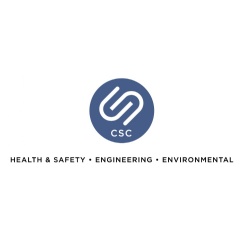New Workplace Crystalline Silica Requirements Begin this Month
Clark Seif Clark conducts industrial hygiene surveys for occupational exposures to airborne contaminants and provides employer compliance consulting services.
Assisting companies and institutions with their compliance efforts to the new silica rules are Clark Seif Clark’s experienced industrial hygienists.
Silica is a part of the environment, commonly occurring in most soils. Chronic exposure to respirable crystalline silica particulates has long been known to cause restrictive lung disease and complications that can lead to cancer.
Worker exposures to airborne crystalline silica are tightly restricted by California’s Occupational Safety and Health Administration (Cal/OSHA). Federal OSHA also recently passed new silica rules for maritime, general industry and construction sectors that become effective June 23, 2016.
Generation of Airborne Silica
In construction, concrete cutting, coring, grinding, some excavation operations, crushing operations that break, pulverize and crush hardened concrete can all generate significant amounts of airborne silica.
In the maritime and general industries, airborne silica can be generated during processes involving blending or handling bulk silica containing solids, abrasive blasting operations or using compressed air to clean surfaces. Additionally, concrete block manufacturing operations are known to generate airborne silica.
The New Federal Standard
Although the final rule was published in the March 25, 2016 Federal Register, the full standard is not yet in the OSHA Standards on their website (https://www.osha.gov/law-regs.html). When published, the references will be 29CFR 1910.1053 for General Industry (and Maritime) and 29CFR 1926.1153 for the Construction Industry.
In California, to be in compliance, employers should always use the most stringent of the standards (i.e. Cal/OSHA or Federal OSHA). Since a comprehensive standard, like the new Federal OSHA standard, has not been adopted in California, employers should refer to the Federal standard when assessing their crystalline silica program.
“Assisting companies and institutions with their compliance efforts to the new silica rules are Clark Seif Clark’s experienced industrial hygienists,” said William Jones, CIH, CSP, CPE and Vice President of Industrial Hygiene at Clark Seif Clark. “Our silica experts conduct air sampling, exhaust ventilation evaluations, make respiratory protective equipment evaluations, help write exposure control plans, compliance plans, and even assist with written employee notifications of air sampling results.”
To learn more about this or other occupational, industrial hygiene, indoor air quality, environmental, health and safety testing services, please visit www.csceng.com, email csc@csceng.com or call (800) 807-1118.
About Clark Seif Clark
CSC was established in 1989 to help clients in both public and private sectors address environmental, IAQ, and health and safety (EH&S) issues. CSC is a leading provider of these services with multiple offices along the western seaboard and southwest. The company believes in science-based protocols and has a strong background in engineering, making them the preferred environmental consultants to industrial clients, healthcare facilities, architects, schools, builders, contractors, developers and real estate professionals.
( Press Release Image: https://photos.webwire.com/prmedia/12710/203558/203558-1.jpg )
WebWireID203558
- Contact Information
- Paul Cochrane
- President
- Cochrane & Associates, LLC
- Contact via E-mail
This news content may be integrated into any legitimate news gathering and publishing effort. Linking is permitted.
News Release Distribution and Press Release Distribution Services Provided by WebWire.
